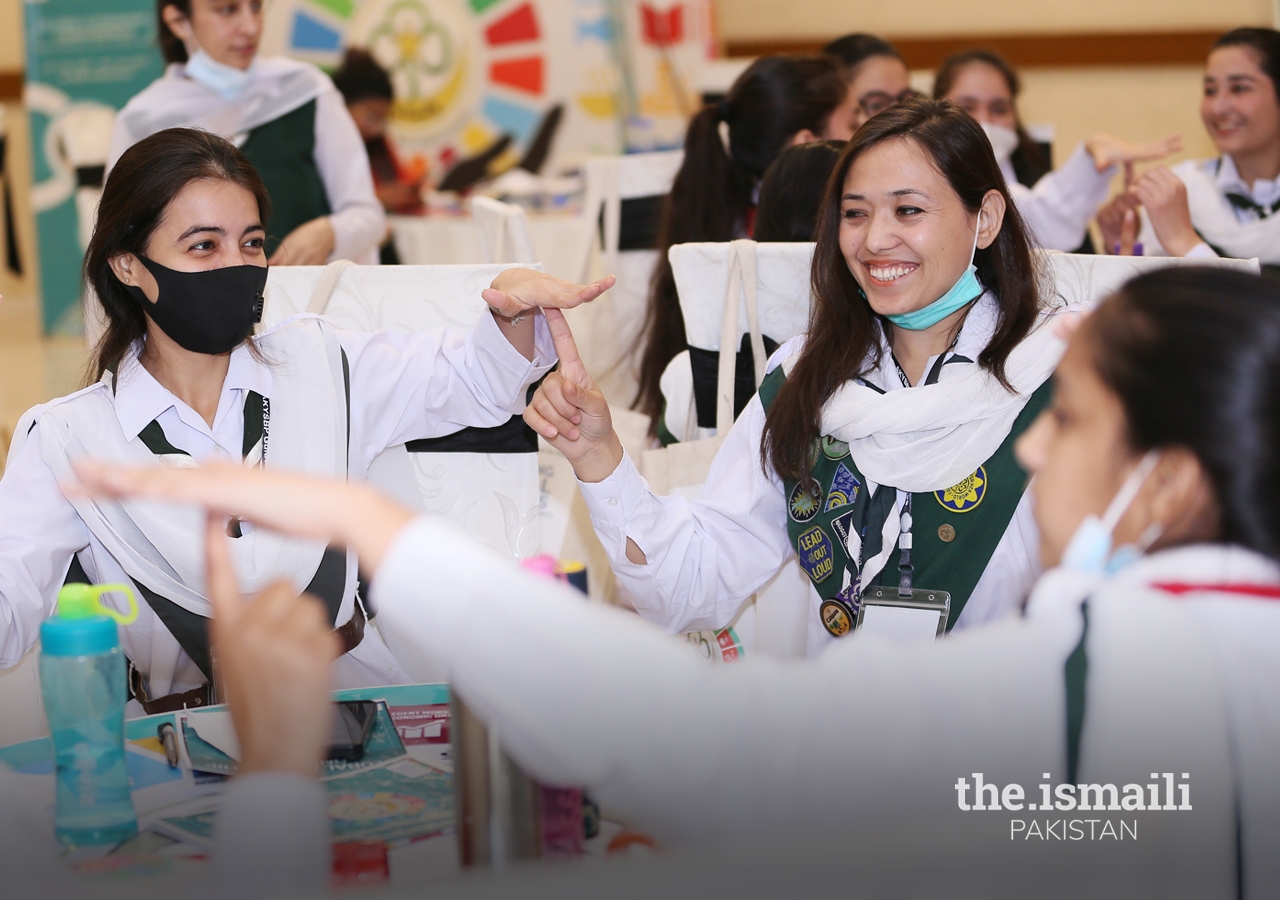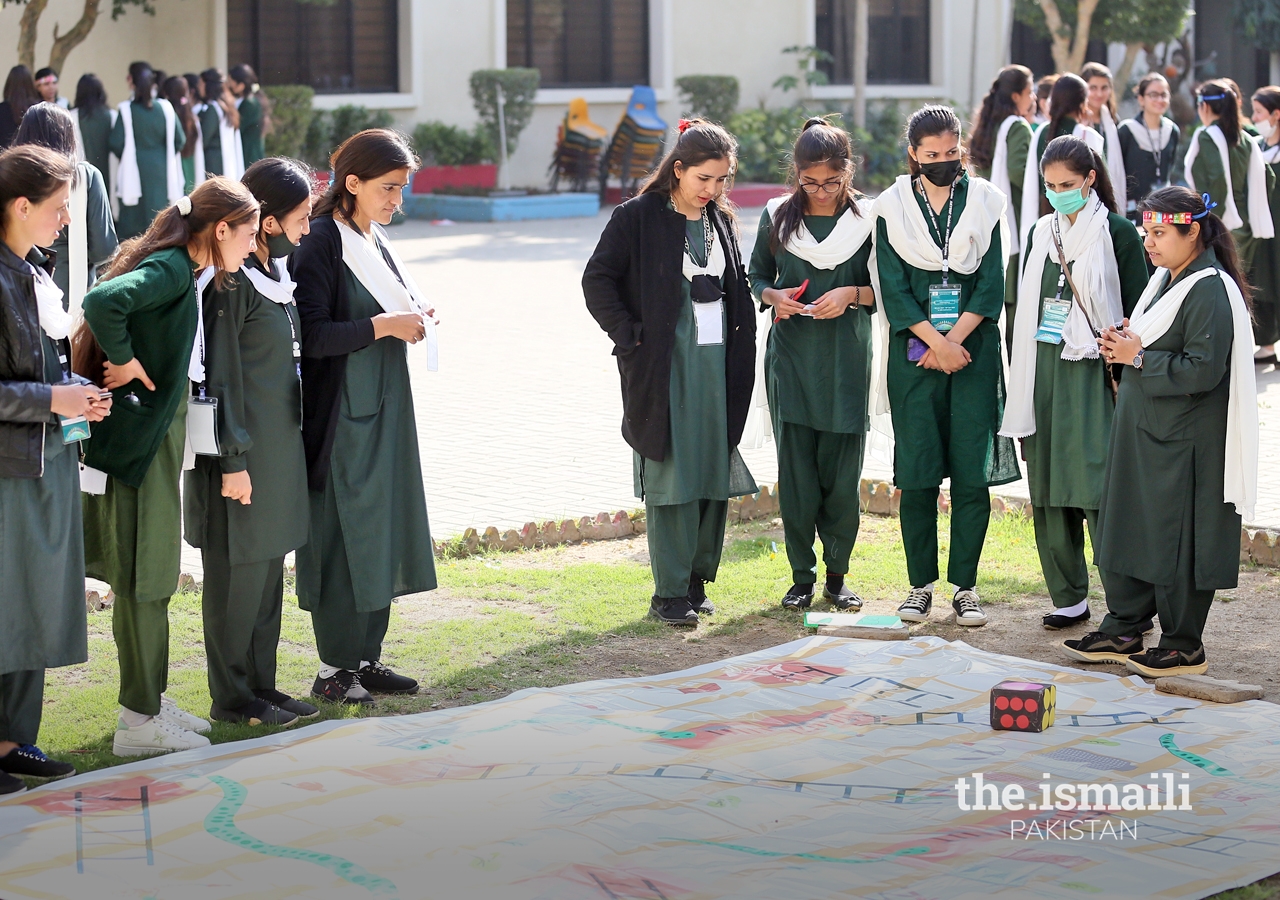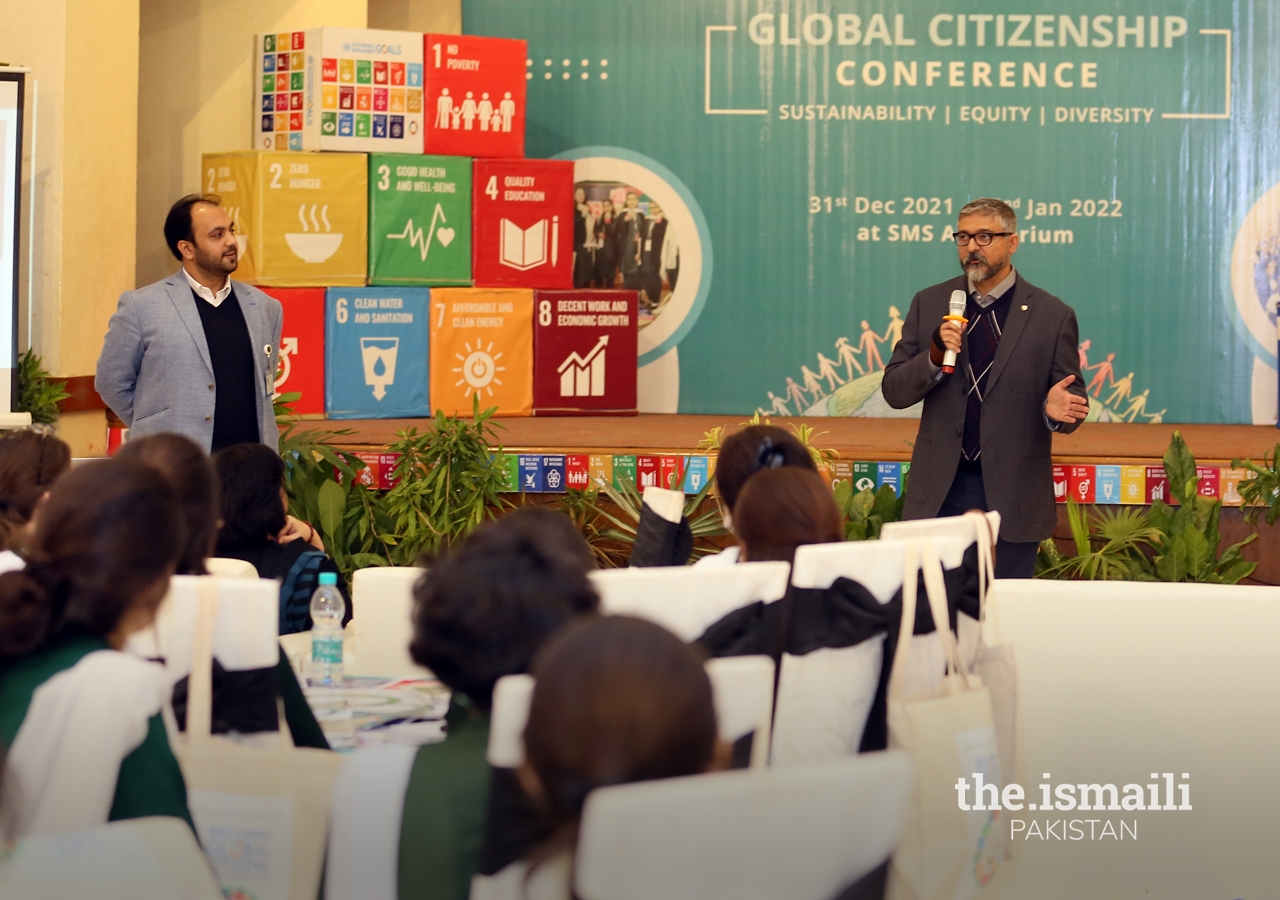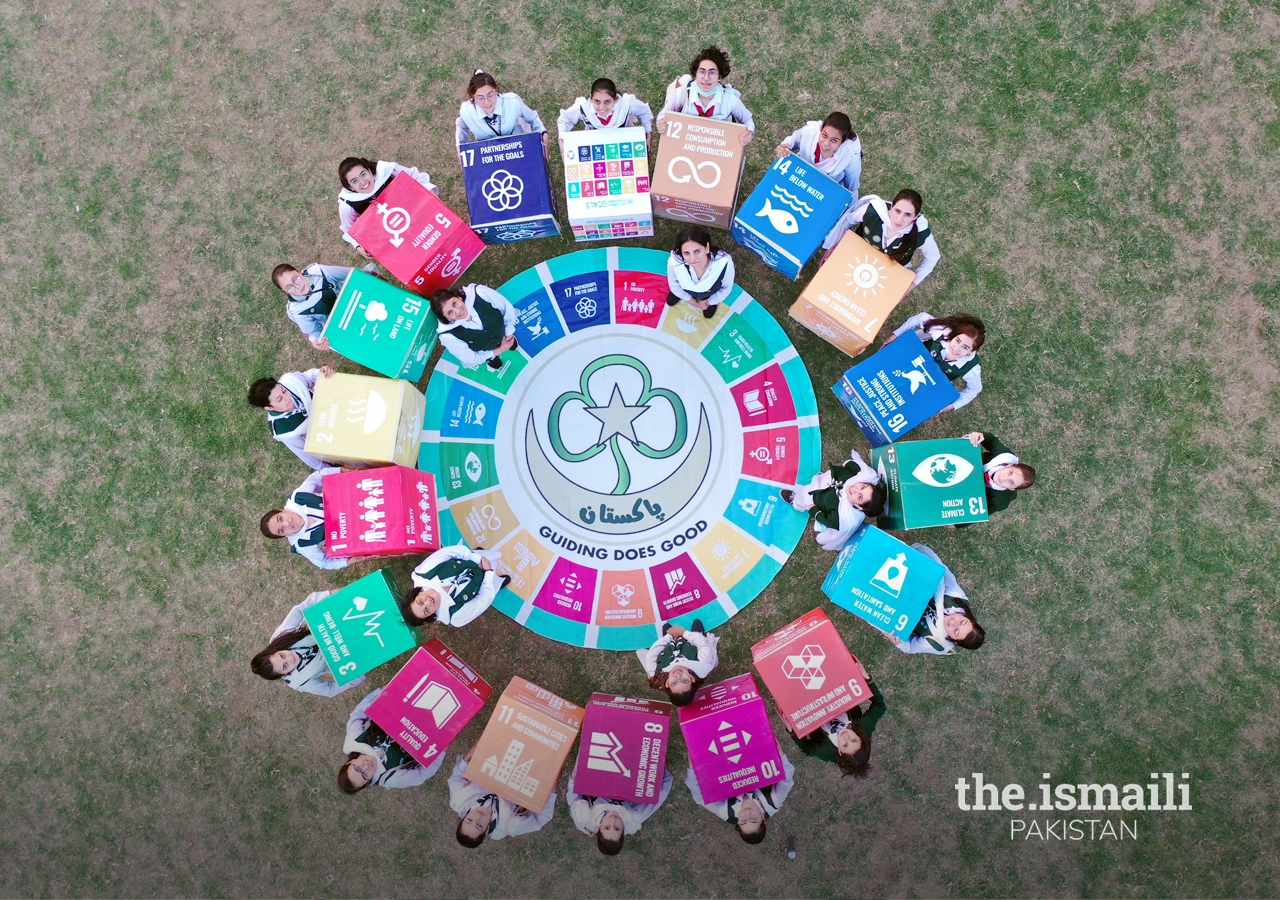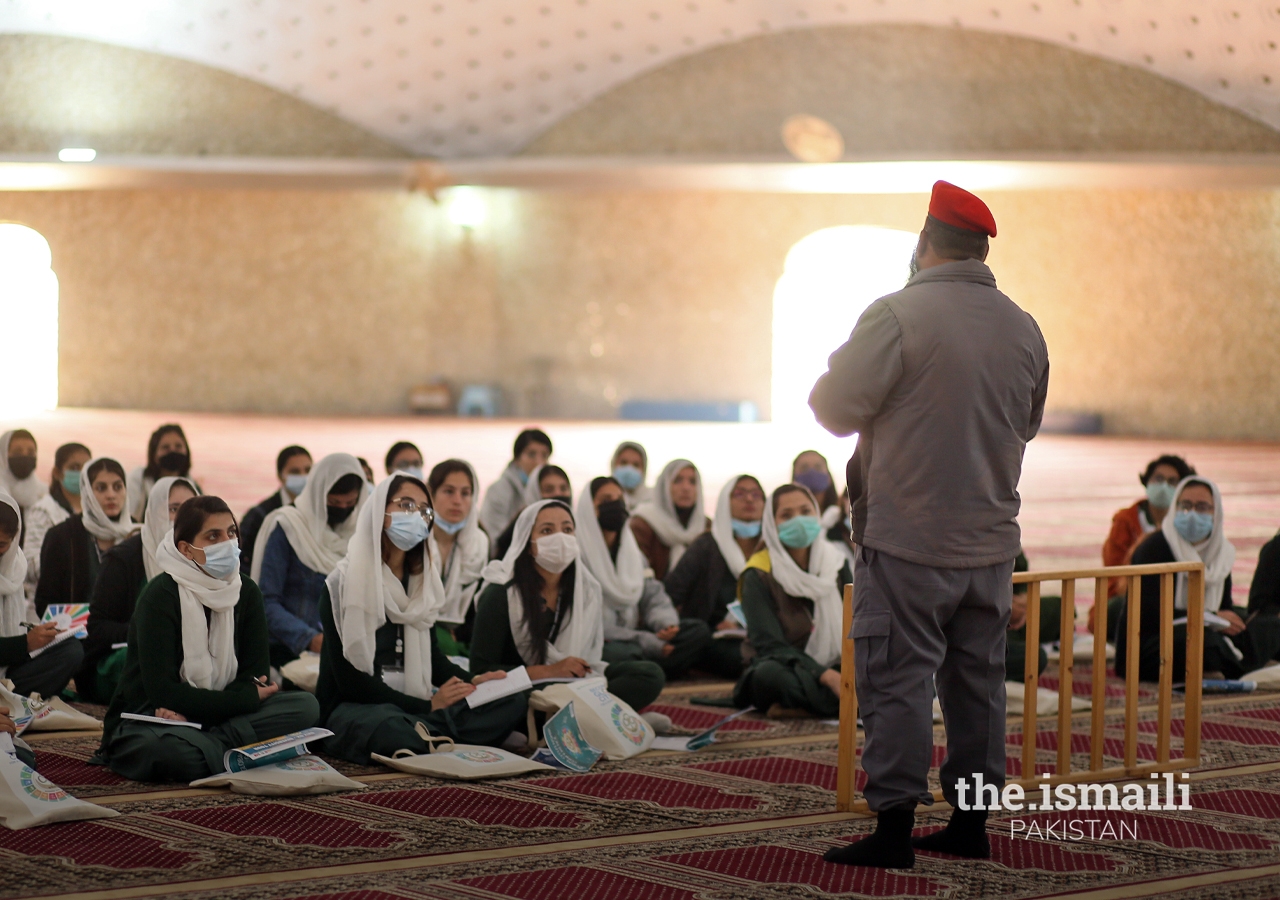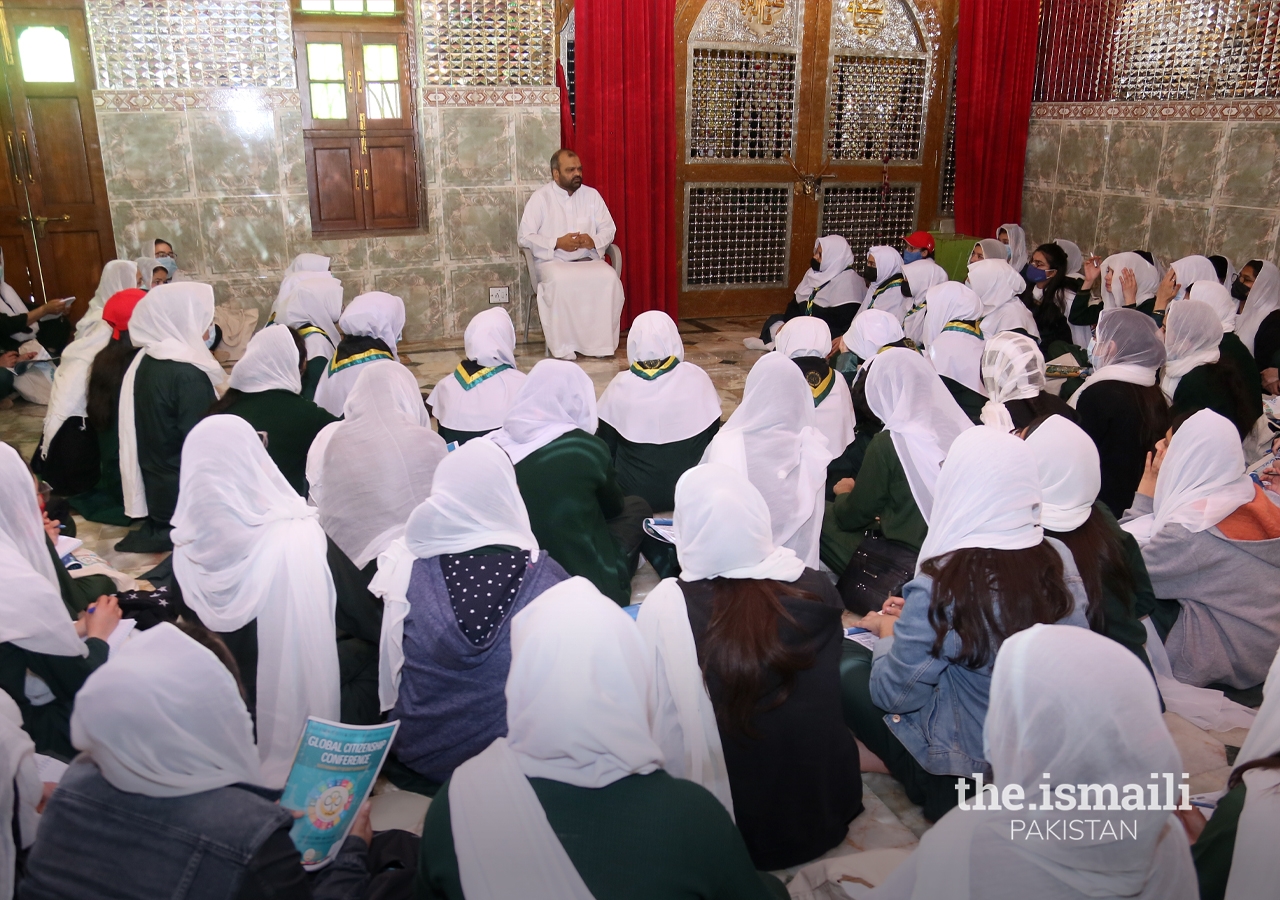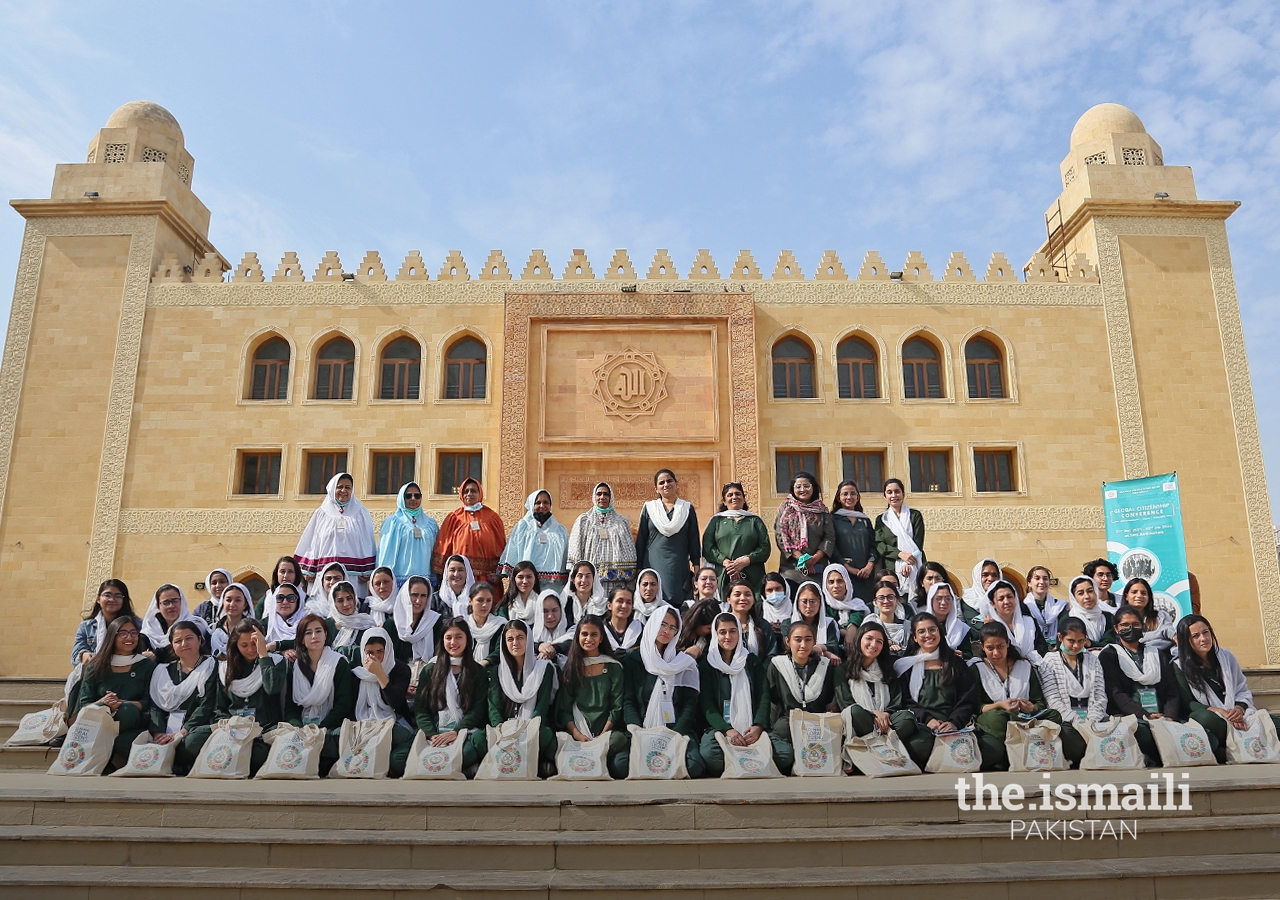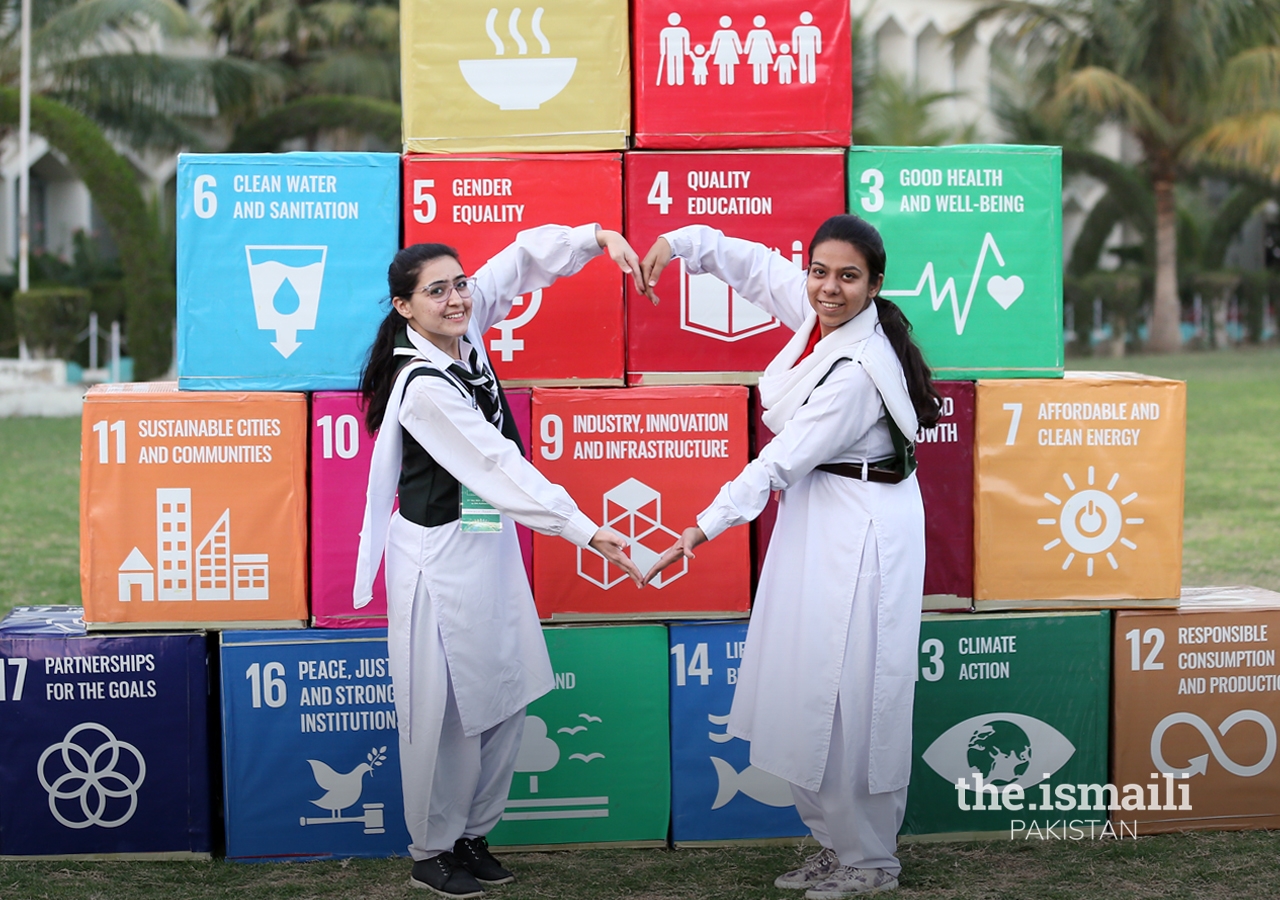The conference was also joined by the notables from Aga Khan Development Network (AKDN) and Jamati leadership, government representatives, partner agencies and donors. Among the notables were Hafiz Sherali – President, Ismaili Council for Pakistan, Hasan Somani – Chairman, Aga Khan Youth and Sports Board for Pakistan (AKYSBP) and Dr. Shehzad Jeeva – Director, Aga Khan University Examination Board (AKU-EB) who graced participants with their wisdom and experience.
Each day brought new opportunities and learning for the enthusiastic participants. The first day of the conference officially began with an introduction about the conference's goals and team-building activities.
“The conference has built motivation to engage and assume active roles to resolve global challenges and contribute to a more just, peaceful, tolerant and sustainable world,” stated Dr. Shehzad Jeeva, Director Aga Khan University Examination Board.
Participants also experienced the diverse communities living within Pakistan by learning about their cultures and ideologies on the second day. The Girl Guides visited congregational places such as Masjid-e-Tooba, known as Gol Masjid, Husami Mosque, a Bohri Mosque, the Imam Bargah of Ithna Asharis, Shri Laxmi Narayan Mandir and Kharadar Jamatkhana.
Sharing her experience, a participant from Booni, Upper Chitral mentioned, “The odyssey was fantastic. The journey from inside the city beginning at Tooba Mosque to the temple, from the temple to the Imam Bargah, it was stunning. We visited many places, met a lot of people with different ethnicities, and the best part was that all were inside the boundaries of a single city.”
The third day focused on building the individual capacities of the Girl Guides. The session started with the importance of research and data before running an advocacy campaign for any cause. Under the guiding umbrella of Nida Dossa, Education Officer at UNICEF, different advocacy methods were explained, such as lobbying, campaigning, alliance-building and digital campaigning.
Dr. Huma Khan, PhD in Education Management and Leadership, spoke about the similarities and differences between equity, fairness and justice. She explained that equity is not separate from the concept of global citizenship; both allow everyone to have an equal opportunity to access basic rights.
A participant from Gilgit exclaimed, “As a leader, I can proudly say that the knowledge I acquired will bring a change not just within myself but also for my peers. I aim to build their capacities by arranging similar sessions in my region.”
The concluding session educated the Girl Guides on becoming active global citizens with an insight into why and how an individual’s actions matter in bringing about change. This led to selecting an aspect of local society that participants wanted to redesign, inspired by the concept of Equiterra, the Organization for World Peace. All groups presented their design with the proper course of action as to how change can be made. The session ended with the motto “Think Global, Act Local” where certificates were distributed amongst the participants.
The closing ceremony was graced by the President, Ismaili Council for Pakistan, Mr. Hafiz Sherali, AKYSBP Chairman Mr. Hassan Somani and AKYSBP National President for Girl Guides Miss Shams Jeewa. The Global Citizenship Conference acknowledged and appreciated the volunteers’ services while providing them with a platform to understand the real essence of global citizenship and to strive to become responsible yet ethical global citizens in today’s society.
The Aga Khan Youth and Sports Board for Pakistan organised a three-day Global Citizenship Conference that highlighted powerful approaches to global issues and sustainable development goals. Forty-nine Girl Guides from Pakistan collaborated to disseminate the concept as well as the relevance of global citizenship and its need in today's world.

